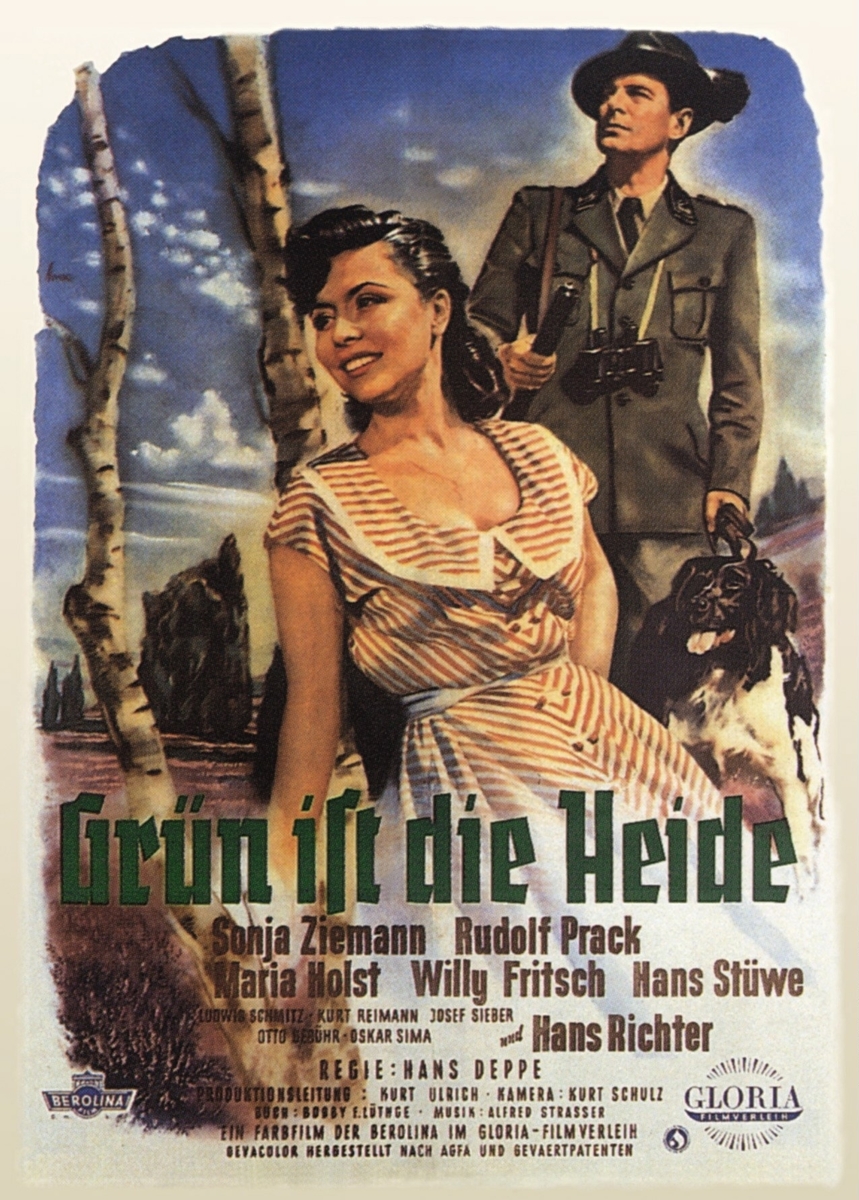Nature and Gender: Grün ist die Heide (1951)
Abstract
Grün ist die Heide [Green is the Heath], the classic 1951 Heimat film, looks at the integration of expellees into a small West German community in the early postwar period. Nature and gender serve as reference systems that point toward a society that is “ordered” but not reminiscent of National Socialism. The film tells the story of Baron Lüdersen (played by Hans Stüwe) and his daughter Helga (Sonja Ziemann), two expellees from East Prussia who seek refuge with aristocratic relatives in the Lüneburg Heath. Helga, the perfect embodiment of postwar femininity, adapts relatively quickly to her new surroundings, whereas the baron struggles at first. Wartime defeat and expulsion have left him in a state of personal crisis, and he makes bad decisions as a result. Mourning the loss of his property, his dominion, and his ability to hunt (a beloved pastime), the baron wanders the heath and night and resorts to poaching. He is initially regarded with suspicion by neighbors and others, but after apprehending a murderer, he is rehabilitated as a man of honor.
This 1951 film poster features heroine Helga Lüdersen with love interest Walter Rainer, a warden played by Rudolf Prack. The two are shown in the forest setting that provides the backdrop for their budding romance. The featured scene occurs at 33:00. Another important scene occurs at 13:30–15:25, when a concerned Helga confronts her father about his poaching. Here, the idea of nature as a metaphor for Heimat comes through. The film’s most moving scene occurs at approximately 1:08:30, when Baron Lüdersen stands to give a speech to his tablemates at the town folk festival [Schützenfest]. His speech describes the expellee experience and the pain of leaving one’s homeland.
Source

Source: Grün ist die Heide (FRG, 1951), film poster.
© picture alliance
Further Reading
Michaela S. Ast, “Flucht und Vertreibung im bundesdeutschen Spielfilm
der 1950er-Jahre,”
Bundeszentrale für politische Bildung,
https://www.bpb.de/geschichte/zeitgeschichte/deutschlandarchiv/74912/flucht-und-vertreibung
(last accessed: June 26, 2021)
Alon Confino, “‘This Lovely Country You Will Never Forget.’ Kriegserinnerungen und Heimatkonzepte in der westdeutschen Nachkriegszeit,” in Das Erbe der Provinz. Heimatkultur und Geschichtspolitik nach 1945, edited by Habbo Knoch. Göttingen: Wallstein, 2001, pp. 235–51.
Johannes von Moltke, No Place like Home. Locations of Heimat in German Cinema. Berkeley and Los Angeles: University of California Press, 2005.